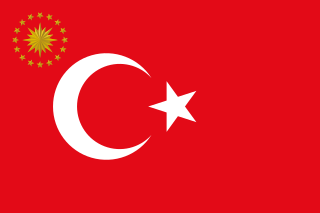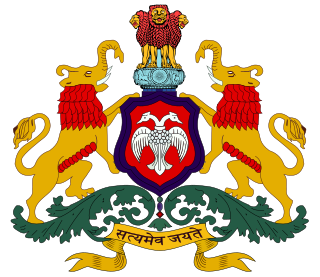
The governor of New York is the head of state and head of government of the U.S. state of New York. The governor is the head of the executive branch of New York's state government and the commander-in-chief of the state's military forces. The governor has a duty to enforce state laws and the power to either approve or veto bills passed by the New York Legislature, to convene the legislature and grant pardons, except in cases of impeachment and treason. The governor is the highest paid governor in the country.
A head of state is the public persona who officially embodies a state in its unity and legitimacy. Depending on the country's form of government and separation of powers, the head of state may be a ceremonial figurehead or concurrently the head of government and more.

A prime minister,premier or chief of cabinet is the head of the cabinet and the leader of the ministers in the executive branch of government, often in a parliamentary or semi-presidential system. Under those systems, a prime minister is not the head of state, but rather the head of government, serving under either a monarch in a democratic constitutional monarchy or under a president in a republican form of government.

President is a common title for the head of state in most republics. The president of a nation is, generally speaking, the head of the government and the fundamental leader of the country or the ceremonial head of state.
The head of government is the highest or the second-highest official in the executive branch of a sovereign state, a federated state, or a self-governing colony, autonomous region, or other government who often presides over a cabinet, a group of ministers or secretaries who lead executive departments. In diplomacy, "head of government" is differentiated from "head of state" although in some countries, for example the United States, they are the same person.
A governor is an administrative leader and head of a polity or political region, ranking under the head of state and in some cases, such as governors-general, as the head of a state's official representative. Depending on the type of political region or polity, a governor may be either appointed or elected, and the governor's powers can vary significantly, depending on the public laws in place locally. The adjective pertaining to a governor is gubernatorial, from the Latin root gubernare.
In many countries, a mayor is the highest-ranking official in a municipal government such as that of a city or a town. Worldwide, there is a wide variance in local laws and customs regarding the powers and responsibilities of a mayor as well as the means by which a mayor is elected or otherwise mandated. Depending on the system chosen, a mayor may be the chief executive officer of the municipal government, may simply chair a multi-member governing body with little or no independent power, or may play a solely ceremonial role. A mayor's duties and responsibilities may be to appoint and oversee municipal managers and employees, provide basic governmental services to constituents, and execute the laws and ordinances passed by a municipal governing body. Options for selection of a mayor include direct election by the public, or selection by an elected governing council or board.

The president of India is the head of state of the Republic of India. The president is the nominal head of the executive, the first citizen of the country, as well as the commander-in-chief of the Indian Armed Forces. Droupadi Murmu is the 15th and current president, having taken office from 25 July 2022.

The president of Turkey, officially the president of the Republic of Türkiye, is the head of state and head of government of Turkey. The president directs the executive branch of the national government and is the commander-in-chief of the Turkish military. The president also heads the National Security Council.

A state visit is a formal visit by a head of state to a foreign country, at the invitation of the head of state of that foreign country, with the latter also acting as the official host for the duration of the state visit. Speaking for the host, it is generally called a state reception. State visits are considered to be the highest expression of friendly bilateral relations between two sovereign states, and are in general characterised by an emphasis on official public ceremonies.

The Yang di-Pertuan Agong, also known as the Supreme Head of the Federation, the Paramount Ruler or simply as the Agong, and unofficially as the King of Malaysia, is the constitutional monarch and head of state of Malaysia. The office was established in 1957, when the Federation of Malaya gained independence from the United Kingdom. The Yang di-Pertuan Agong is elected by the Conference of Rulers, comprising the nine rulers of the Malay states, with the office de facto rotated between them, making Malaysia one of the world's few elective monarchies.

The president of the Republic of Uganda is the head of state and the head of government of Uganda. The president leads the executive branch of the government of Uganda and is the commander-in-chief of the Uganda People's Defence Force.

The president of the Federal Republic of Nigeria is the head of state and head of government of the Federal Republic of Nigeria. The president directs the executive branch of the federal government and is the commander-in-chief of the Nigerian Armed Forces.
The Government of India, known as the Union Government or Central Government but often simply as the Centre, is the national authority of the Republic of India, a federal democracy located in South Asia, consisting of 28 union states and eight union territories. Under the Constitution, there are three primary branches of government: the legislative, the executive and the judiciary, whose powers are vested in a bicameral Parliament, President, aided by the Council of Ministers, and the Supreme Court respectively. Through judicial evolution, the Parliament has lost its sovereignty as its amendments to the Constitution are subject to judicial intervention. Judicial appointments in India are unique in that the executive or legislature have negligible say.
An official residence is the residence of a head of state, head of government, governor, religious leader, leaders of international organizations, or other senior figure. It may be the same place where they conduct their work-related functions.
A chancellor is a leader of a college or university, usually either the executive or ceremonial head of the university or of a university campus within a university system.

The Government of Karnataka, abbreviated as GoK, or simply Karnataka Government, formerly Government of Mysore, is a democratically elected state body with the governor as the ceremonial head to govern the Southwest Indian state of Karnataka. The governor who is appointed for five years appoints the chief minister and on the advice of the chief minister appoints his council of ministers. Even though the governor remains the ceremonial head of the state, the day-to-day running of the government is taken care of by the chief minister and his council of ministers in whom a great amount of legislative powers are vested.

The president of Ukraine is the head of state of Ukraine. The president represents the nation in international relations, administers the foreign political activity of the state, conducts negotiations and concludes international treaties. The president is directly elected by the citizens of Ukraine for a five-year term of office, limited to two terms consecutively.












